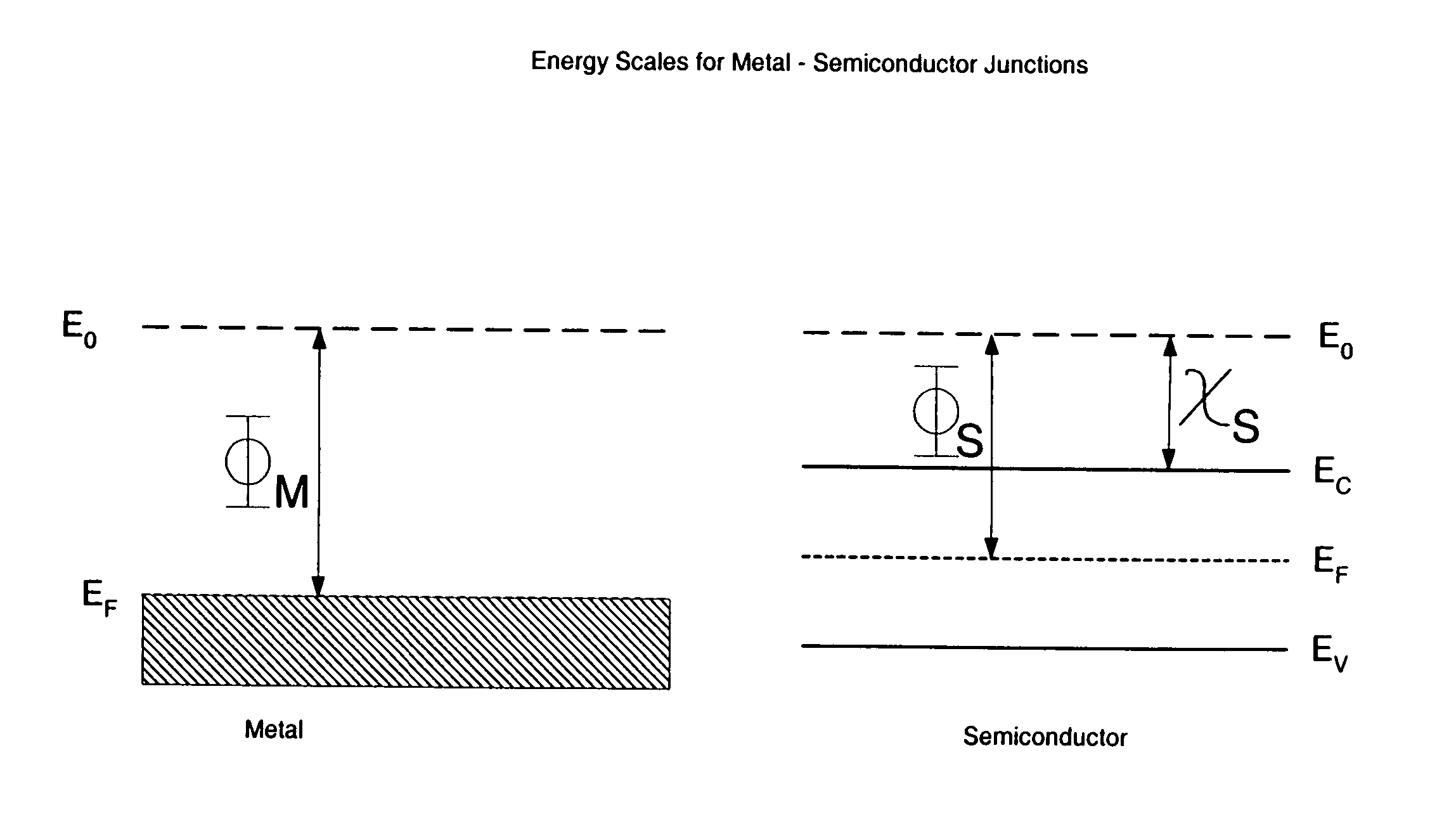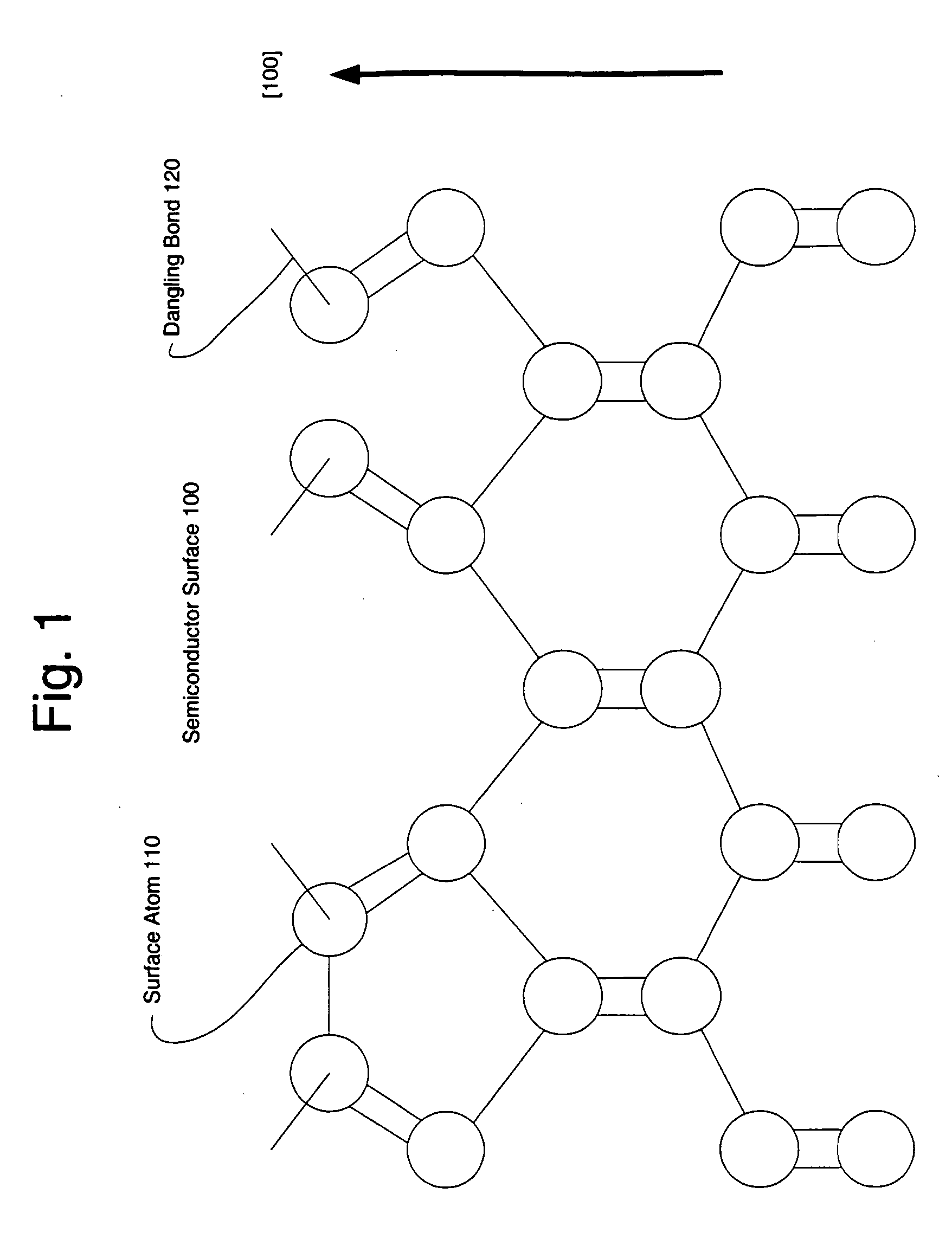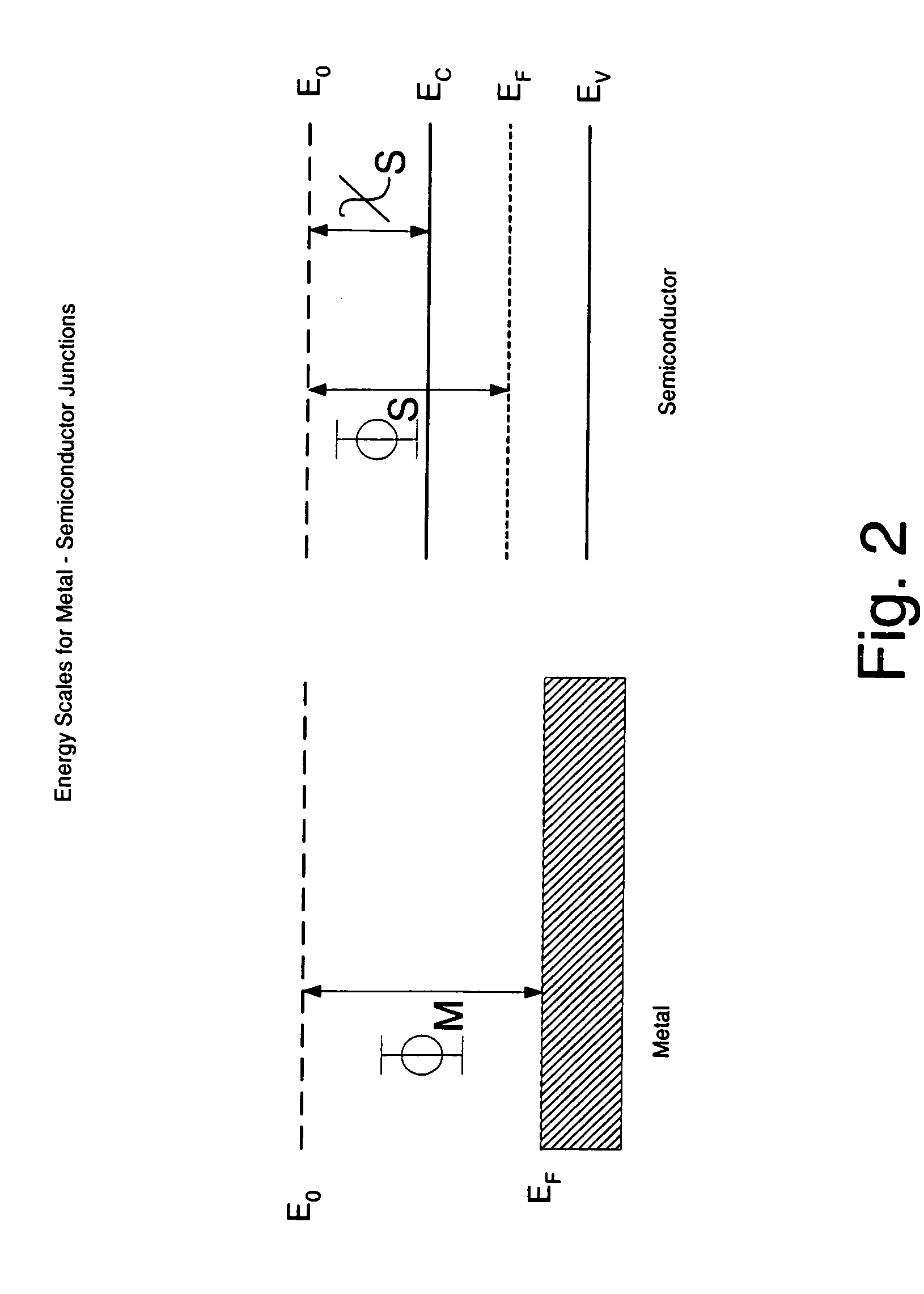Method for depinning the fermi level of a semiconductor at an electrical junction and devices incorporating such junctions
a technology of fermi level and semiconductor, applied in the direction of superconductor devices, semiconductor devices, electrical apparatus, etc., can solve the problems that bardeen's model (like schottky's) is best considered as a limiting case, and no one explanation satisfies all experimental observations regarding such junctions
- Summary
- Abstract
- Description
- Claims
- Application Information
AI Technical Summary
Benefits of technology
Problems solved by technology
Method used
Image
Examples
Embodiment Construction
[0026] Described herein are processes for depinning the Fermi level of a silicon-based semiconductor (e.g., Si, SiC or SiGe) at a metal-semiconductor junction as well as devices that use such a junction. As more fully discussed below, an interface layer is introduced between the semiconductor and the metal. The interface layer functions to passivate the semiconductor surface (that is, terminate dangling bonds that may otherwise be present at the semiconductor surface so as to assure chemical stability of the surface) and to displace the semiconductor from the metal so as to reduce the effect of MIGS.
[0027] As discussed more fully below, the present inventors have determined that for thin interface layers disposed between a metal and a silicon-based semiconductor (e.g., Si, SiC and SiGe), so as to form a metal—interface layer—semiconductor junction, there exist corresponding minimum specific contact resistances. Indeed, minimum specific contact resistances of less than or equal to a...
PUM
 Login to View More
Login to View More Abstract
Description
Claims
Application Information
 Login to View More
Login to View More - R&D
- Intellectual Property
- Life Sciences
- Materials
- Tech Scout
- Unparalleled Data Quality
- Higher Quality Content
- 60% Fewer Hallucinations
Browse by: Latest US Patents, China's latest patents, Technical Efficacy Thesaurus, Application Domain, Technology Topic, Popular Technical Reports.
© 2025 PatSnap. All rights reserved.Legal|Privacy policy|Modern Slavery Act Transparency Statement|Sitemap|About US| Contact US: help@patsnap.com



